Hey there! If you’ve ever wondered whether your favorite herb could be messing with your gut, you’re not alone. The short answer? Marijuana can both tighten the screws on a stomach ulcer and, in some cases, help it heal. The key is to understand which part of the plant you’re using, how you’re taking it, and what your body’s already dealing with.
Below we’ll break down the science, share real‑world stories, and give you actionable tips so you can enjoy cannabis responsibly while keeping your stomach happy. Grab a cup of tea (or whatever you prefer) and let’s dive in together.
How Ulcers Form
First, a quick refresher on what we’re actually talking about. A stomach—or peptic—ulcer is an open sore that develops on the lining of the stomach or the first part of the small intestine. Think of the stomach lining as a protective blanket; when that blanket gets ripped, the harsh stomach acid can start chewing away at the tissue underneath.
Why does that blanket tear? The biggest culprits are:
- Helicobacter pylori infection – a sneaky bacterium that lives in about 60 % of gastric ulcers.
- Non‑steroidal anti‑inflammatory drugs (NSAIDs) like ibuprofen or naproxen, which can blunt the mucus that normally shields the stomach.
- Excess stomach acid – often triggered by stress hormones or certain foods, though stress alone isn’t the main villain.
- Smoking and alcohol – both irritate the lining and reduce blood flow.
The good news? Modern medicine has solid tools—proton‑pump inhibitors, H2 blockers, antibiotics for H. pylori—that let most ulcers heal in a few weeks. The trick is not to let anything else sabotage the process.
Marijuana’s Direct Effects
Now, let’s talk about the plant itself. Cannabis contains dozens of compounds, but the two you’ll hear about most are THC (the psychoactive “high” component) and CBD (the non‑psychoactive, often anti‑inflammatory friend).
THC and Acid Production
Some research suggests THC can crank up gastric acid. A 2021 nationwide inpatient study found that people with cannabis‑use disorders were about 1.4 times more likely to be hospitalized for peptic ulcer disease. The authors theorized that the THC‑driven “high” can relax the lower esophageal sphincter and stimulate acid‑secreting cells, leaving the stomach lining more exposed.
CBD’s Protective Side
On the flip side, CBD looks like a gentle guardian. Animal experiments have shown that CBD can lower stomach acid and boost blood flow to the gut lining, essentially feeding the “blanket” we talked about earlier. One study published on ScienceDirect reported that rats given CBD had smaller ulcers and faster healing times.
Endocannabinoid System (ECS) Interference
Our bodies naturally produce “endocannabinoids” that help regulate digestion, pain, and inflammation. When you smoke weed, external cannabinoids (THC, CBD) bind to the same receptors. This can be a double‑edged sword: high THC may out‑compete the body’s own calming signals, slowing repair, while CBD can augment the protective pathways.
Route Matters
How you take cannabis changes the impact:
- Smoking or vaping delivers THC straight to the stomach lining, potentially irritating it.
- Edibles, tinctures, or oils give a more systemic effect, letting CBD work without direct contact with the gastric wall.
- Topical or transdermal formats barely affect the gut at all.
Research Summary – Risk vs. Benefit
Let’s balance the scales. On the risk side, the 2021 Cureus analysis flags a modest but notable increase in ulcer‑related hospitalizations among heavy THC users. The evidence for a direct cause‑and‑effect is still evolving, but it’s a signal worth heeding.
On the benefit side, the data are promising but thin. Human trials on CBD for ulcer treatment are still scarce; most of what we have are pilot studies and animal work showing reduced inflammation and acid levels. The Leafwell review points out that CBD may “mask” pain, which could be a double‑edged sword—relief is great, but you don’t want to ignore worsening ulcer symptoms.
Bottom line? THC‑heavy, frequent smoking raises ulcer risk, whereas CBD‑rich, low‑THC preparations might offer protective benefits. The science isn’t settled, so the safest path is to stay informed and listen to your body.
Practical Guidance for Cannabis Users
Pick the Right Cannabinoid Profile
If you’re prone to ulcers or already dealing with one, look for products with a high CBD‑to‑THC ratio. Many dispensaries label strains as “CBD‑dominant” or “balanced.” Aim for something like 10 % CBD and less than 1 % THC if you want the anti‑inflammatory perks without the acid‑spiking side effects.
Mind Your Method
Smoking on an empty stomach is a recipe for irritation. Try to:
- Eat a light, balanced meal before you vape or puff.
- Switch to edibles or sublingual tinctures if you need higher CBD doses.
- Avoid pipelines that deliver harsh hot smoke—think “smooth” vape pens with temperature control.
Dosage & Frequency
Start low, go slow. A good rule of thumb is 5 mg of CBD once a day for beginners, then slowly increase if you notice any stomach improvement. Keep a simple journal: note the time you take cannabis, the type, dose, and any digestive symptoms that day. Patterns pop up fast when you write them down.
Combine with Conventional Care
Don’t ditch your doctor’s prescription just because you’re experimenting with cannabis. If you’re on a proton‑pump inhibitor (PPI) or an H2 blocker, keep taking it. In fact, some clinicians suggest using CBD as an adjunct—think of it as a “supporting actor” while the “lead” (your medication) does the heavy lifting.
When to Seek Medical Help
Even with the best self‑care, certain warning signs demand professional attention:
- Persistent, gnawing pain that lasts more than a few days.
- Vomiting blood or material that looks like coffee grounds.
- Black, tar‑like stools (a sign of hidden bleeding).
- Sudden weight loss or loss of appetite beyond the “munchies.”
If any of these appear, call your doctor or head to urgent care—ulcers can bleed or perforate, and that’s a medical emergency.
Real‑World Story: From Smoked THC to CBD Relief
Let me share a quick anecdote from a friend, “Mike,” who’s been a regular cannabis consumer for years. He started smoking a high‑THC strain nightly after work. After six months, he noticed a dull ache after meals and occasional nausea. An endoscopy revealed a small gastric ulcer.
Mike’s gastroenterologist suggested standard medication and a trial of CBD oil. He swapped his nightly joint for a 10 mg CBD tincture taken with dinner. Within three weeks, his ulcer pain dropped from a “constant ache” to “once‑in‑a‑while discomfort.” Follow‑up endoscopy after eight weeks showed the ulcer had shrunk significantly.
Mike’s case isn’t a universal cure, but it illustrates how adjusting the cannabinoid profile—and the method—can tip the scales toward healing.
Putting It All Together
We’ve covered a lot, so here’s a quick recap you can stick on your fridge:
| What to Watch | Practical Tip |
|---|---|
| High‑THC, frequent smoking | Limit to occasional use; consider low‑THC strains. |
| CBD‑rich, low‑THC formats | Prefer edibles, tinctures, or oils taken with food. |
| Existing ulcer medication | Never stop without doctor approval; use cannabis as an adjunct. |
| Red‑flag symptoms | Seek medical care immediately. |
Remember, you’re the captain of your own health ship. Cannabis can be a friendly co‑pilot, but only if you steer wisely.
Resources & Further Reading
If you want to dig deeper, check out these reputable sources (all links open in a new tab):
- 2021 Cureus study on cannabis‑related ulcer hospitalizations
- Leafwell’s balanced review of marijuana and ulcer risk
- Animal study on CBD’s gastro‑protective effects
- NIH guide to peptic ulcer disease
Conclusion
So, can marijuana cause stomach ulcers? The answer isn’t black‑and‑white. Heavy THC use—especially via smoking—can raise your ulcer risk, while CBD‑rich formulations may help protect the stomach lining and ease pain. The safest route is to choose low‑THC, high‑CBD products, avoid smoking on an empty stomach, and keep any prescribed ulcer medication in your toolbox.
Most importantly, listen to your body and stay in touch with a healthcare professional. If you have questions or want to share your own experience with cannabis and gut health, drop a comment below. We’re all learning together, and your story might help the next reader make a better choice.

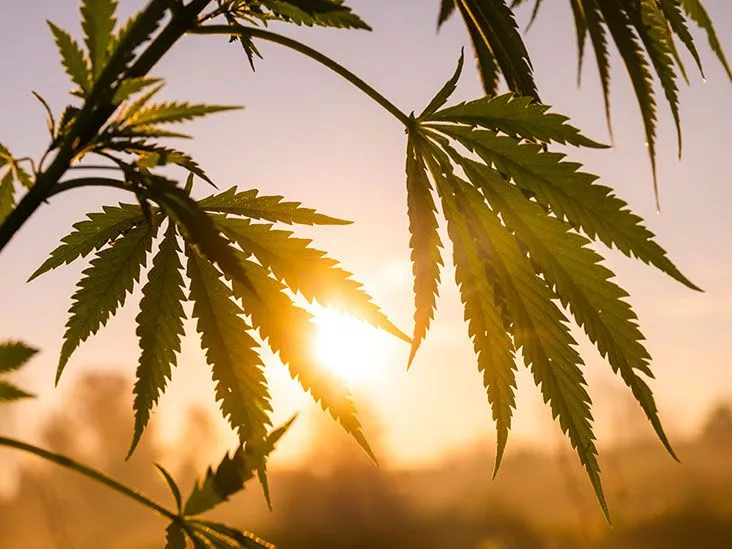

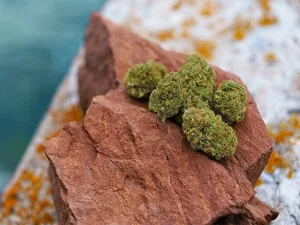
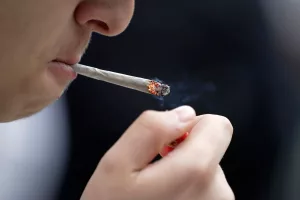
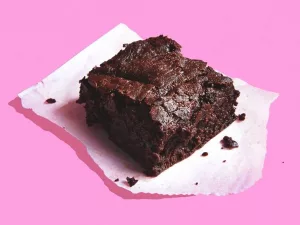
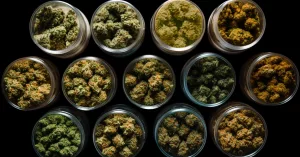
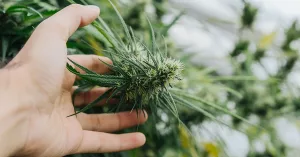
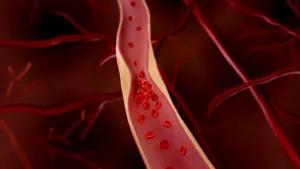
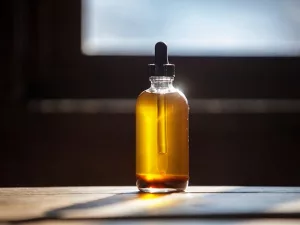















Leave a Reply
You must be logged in to post a comment.